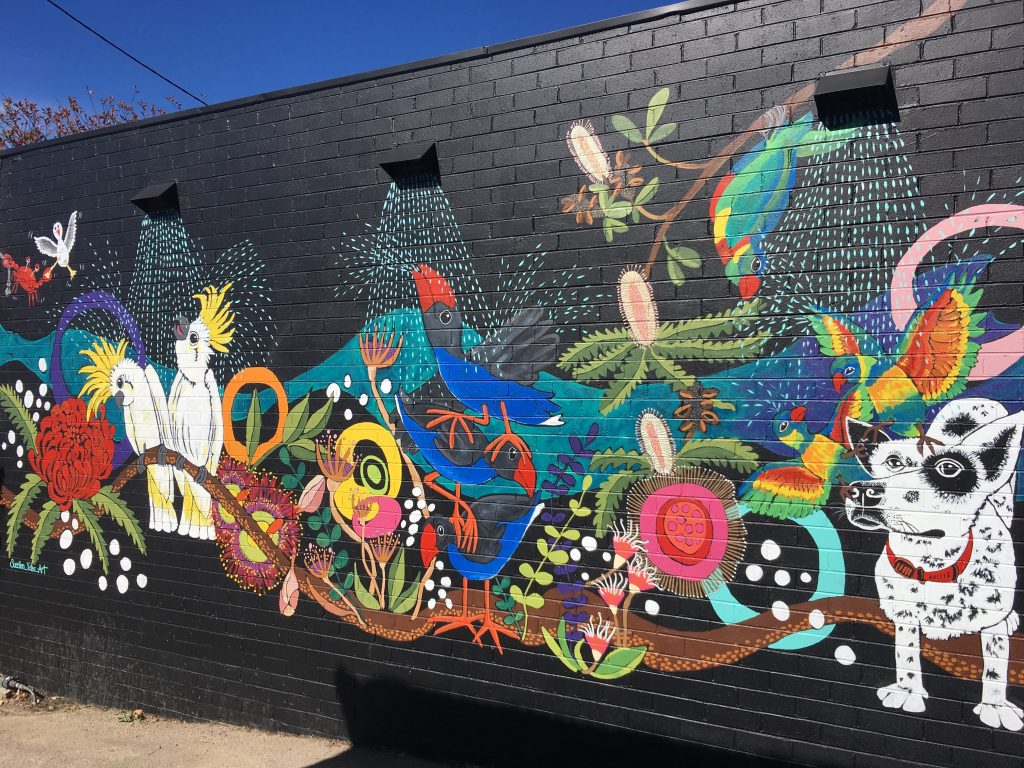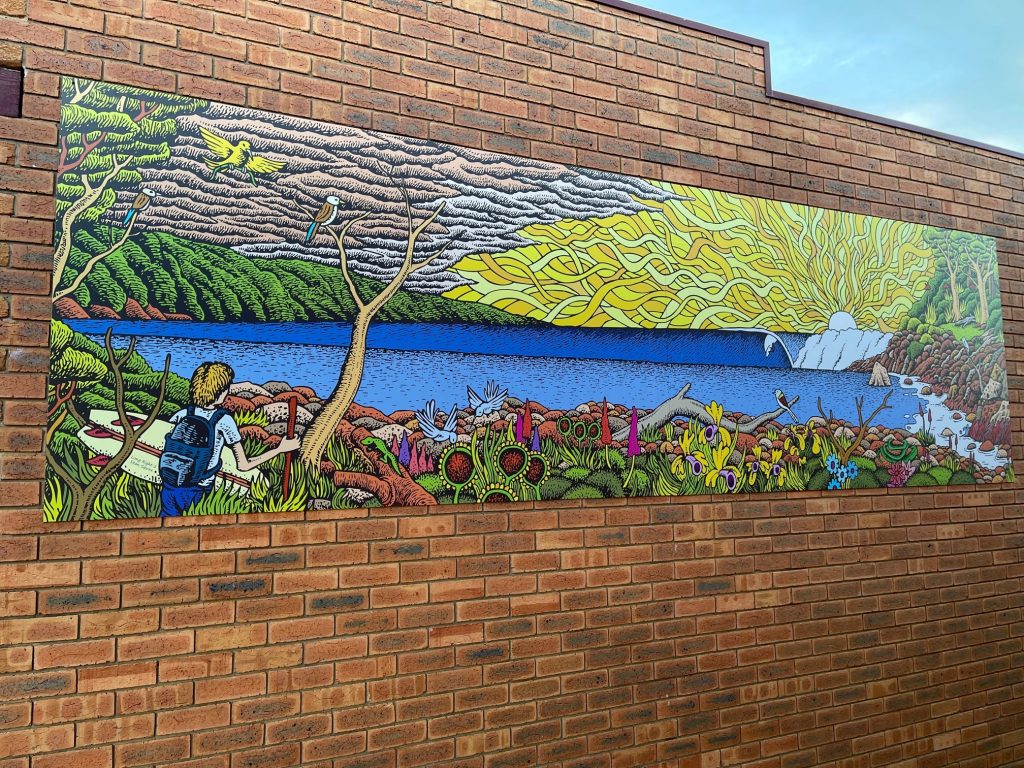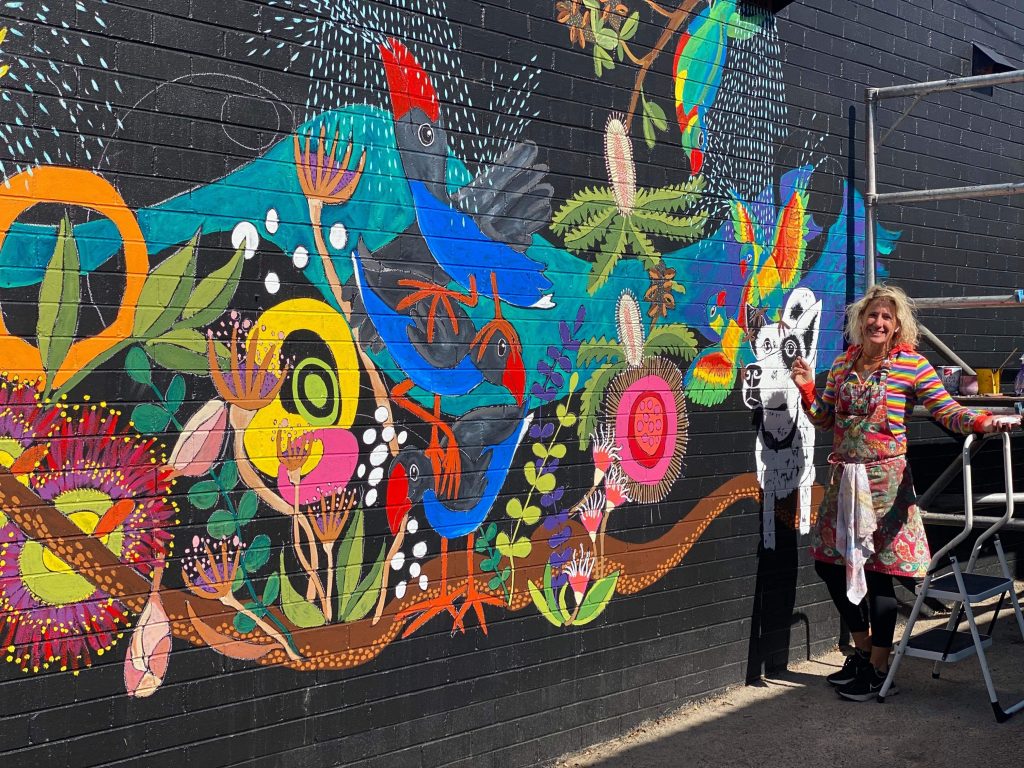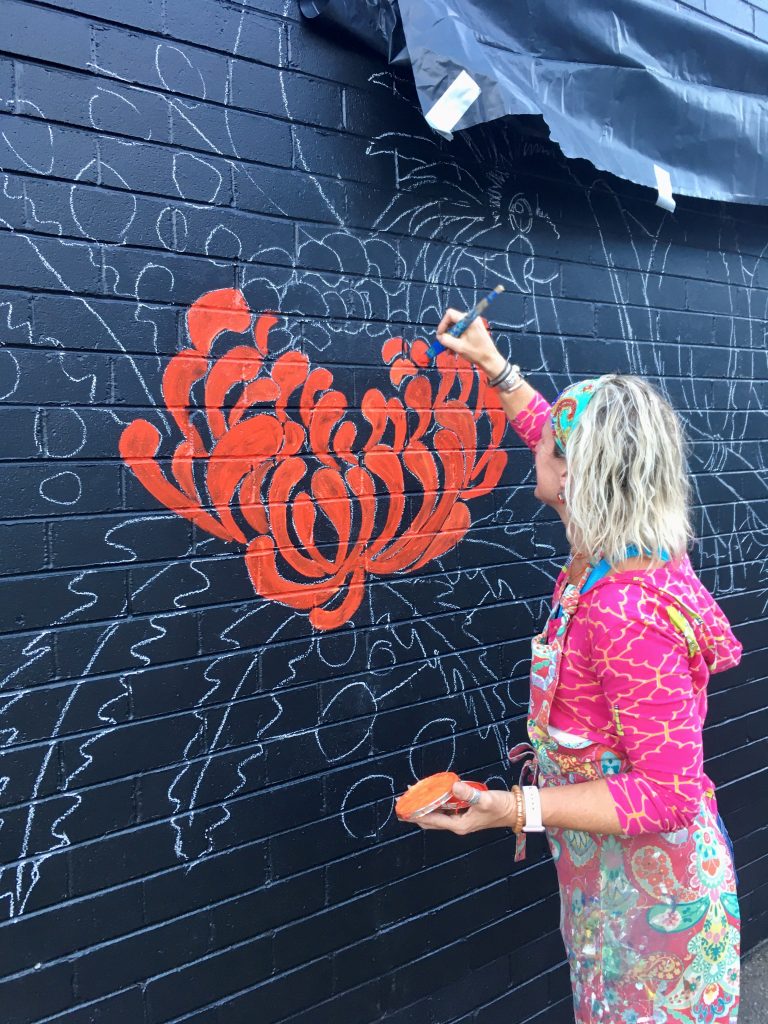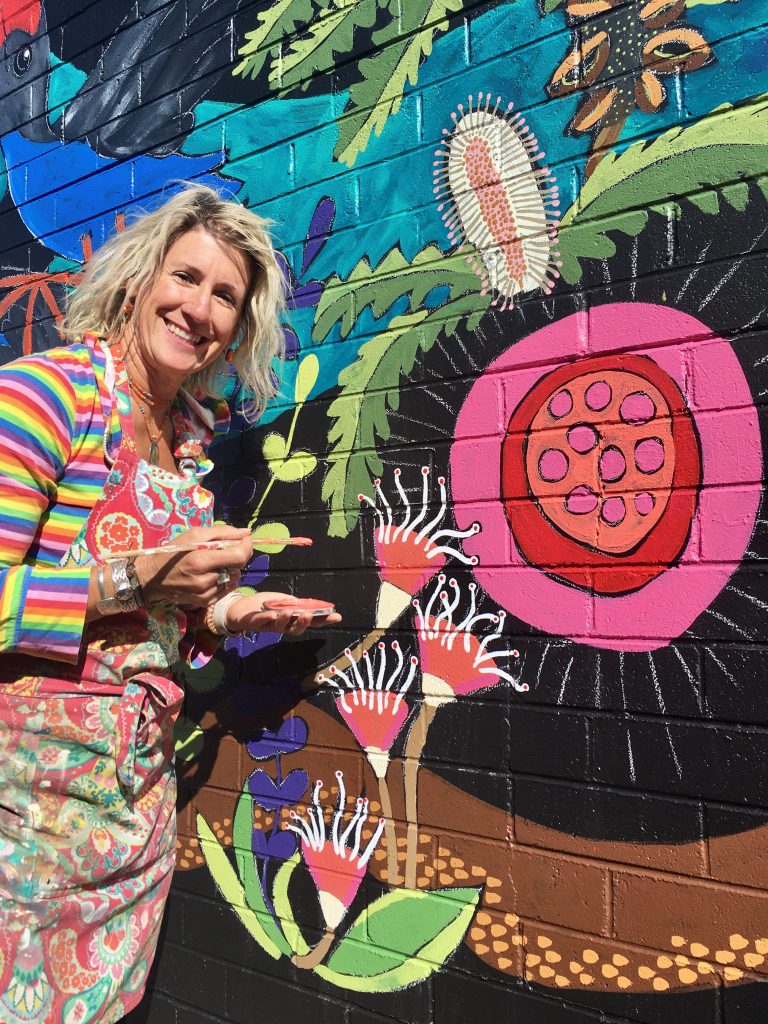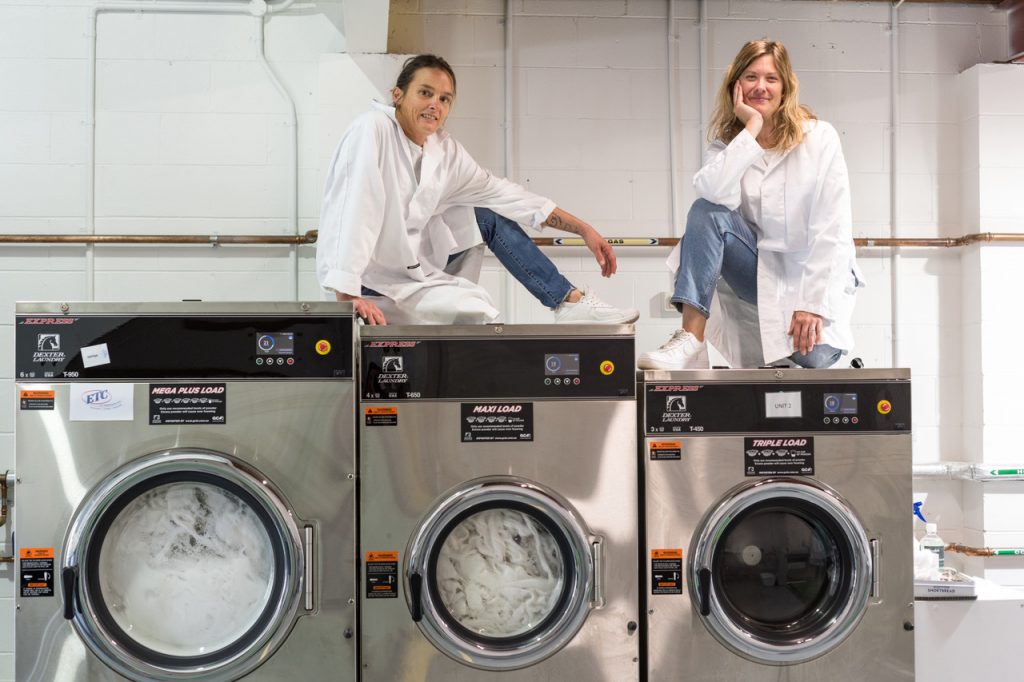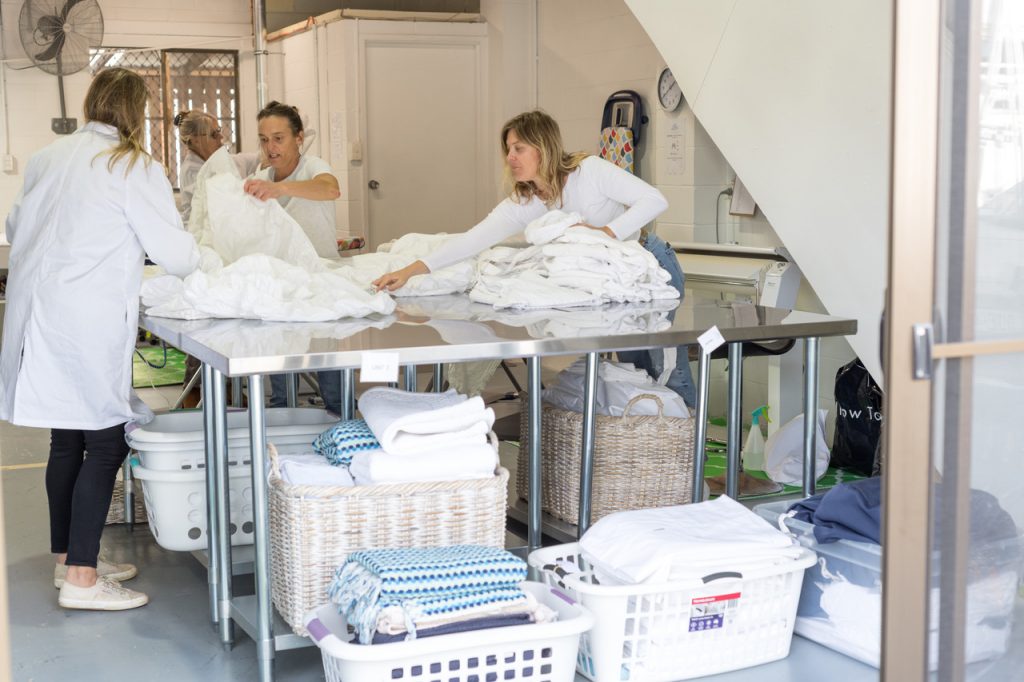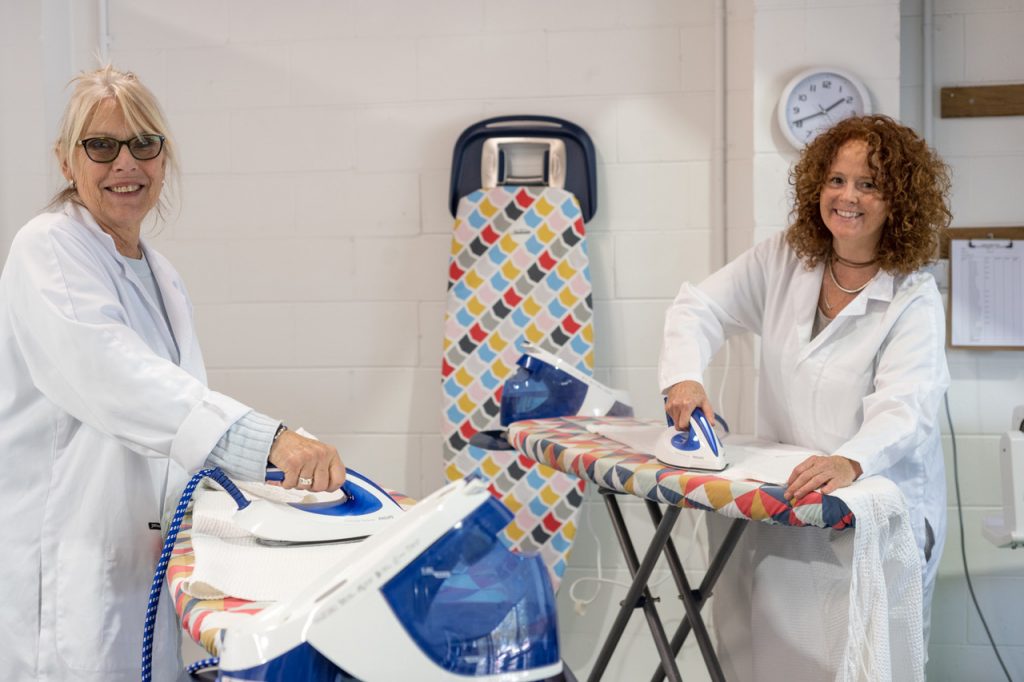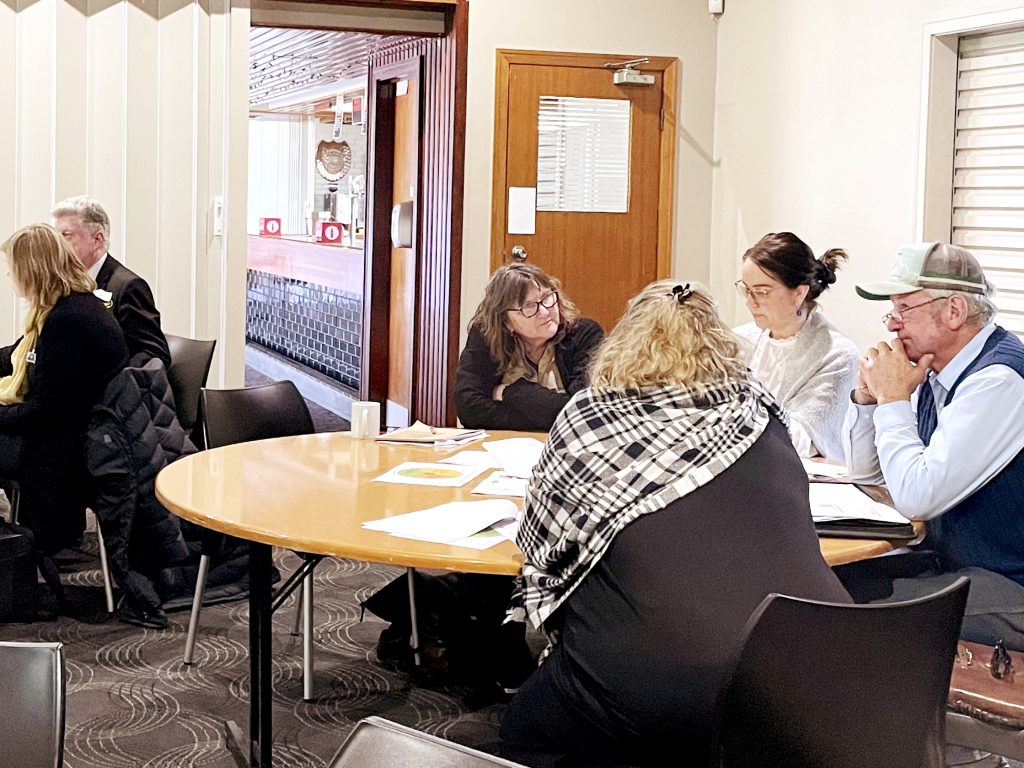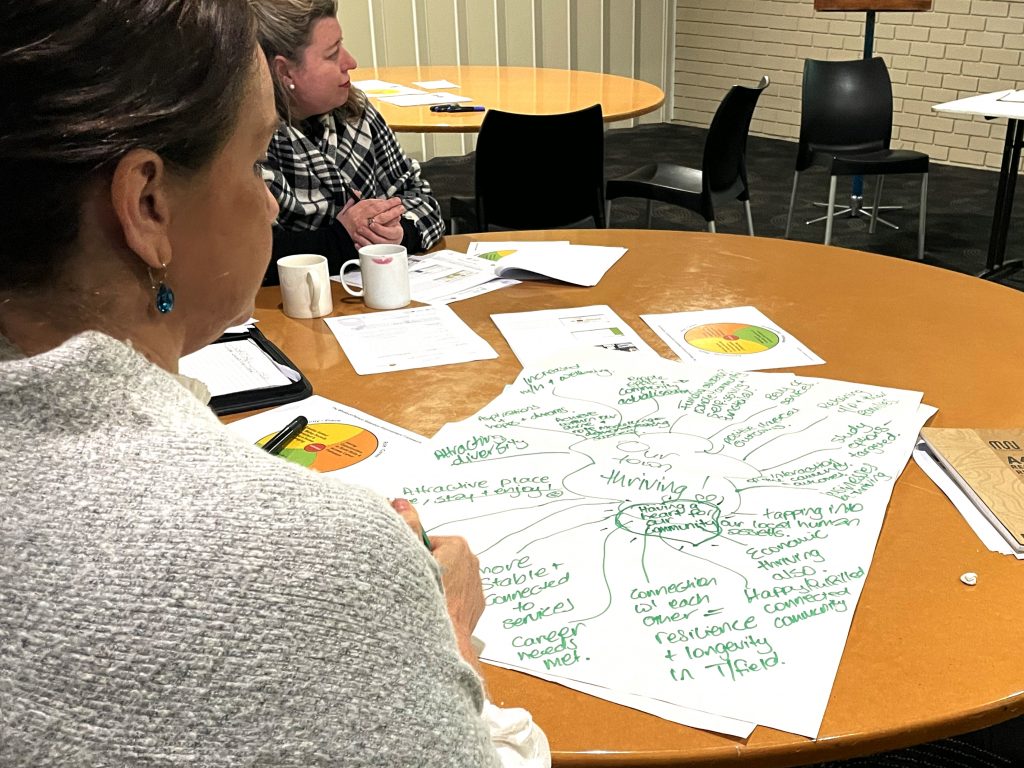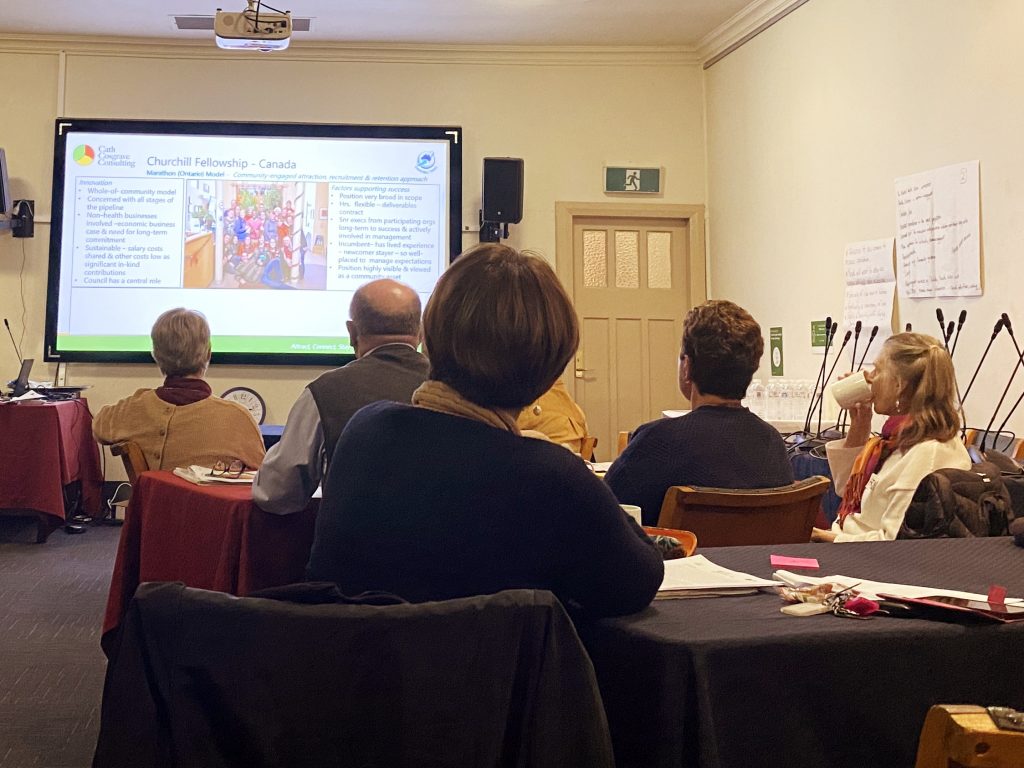Foundation for Rural & Regional Renewal (FRRR)
When COVID lockdowns hit, it created issues for Boys to the Bush, a program that provides support for disadvantaged youth from a variety of regional and rural communities in NSW.
Distance learning and daily life disruptions created challenges. Camps were cancelled and the Boys to the Bush program was impacted at a time when disengaged senior school and school leaver youth required work experience and guidance the most.
CEO and Director Adam DeMamiel said restrictions impacted the way Boys to the Bush normally runs its program, which involves “packing lots of kids in utes and minivans to head out to workplaces and farming properties for MENtoring programs.”
A FRRR Westpac Rural Communities Grant of $10,000 helped ensure the boys, aged 10 to 19, could continue to connect and learn life skills, as well as earn accreditation toward employment in their community when restrictions lifted.
The funding enabled them to purchase workshop equipment for applied construction and maintenance projects in Albury, including much needed power tools, a chainsaw and a hydraulic log-splitter. The equipment is used for building furniture, making repairs to infrastructure and furniture and for their woodcutting social enterprise, ‘Tooled for (Winter) fuel’.
The program gives the young people an opportunity to visit properties in the region to cut trees, bringing the wood back to the Boys to the Bush shed to be split and stacked. The wood is both sold to community members as well as donated to people in need. As their skills develop, they can work on other woodworking projects for themselves and gifts.
“These tools have been used regularly by over 200 kids in the past 12 months alone. This is more than double what we expected.
“Tooled for Fuel” significantly boosts our capacity to provide a safe environment for working on applied construction and maintenance projects. We can welcome guest mentors to demonstrate techniques and fundraise for a sustainable future for Boys to the Bush.
The program helps the young people participate and become more engaged in their community, which Mr DeMamiel said can play a major part in turning lives around and has potential to end generational cycles of disadvantage.
“I am most proud of our ability to give back to the community. Instead of us asking the community to support us all the time we are able to in a small way donate things of value back,” Mr DeMamiel said.
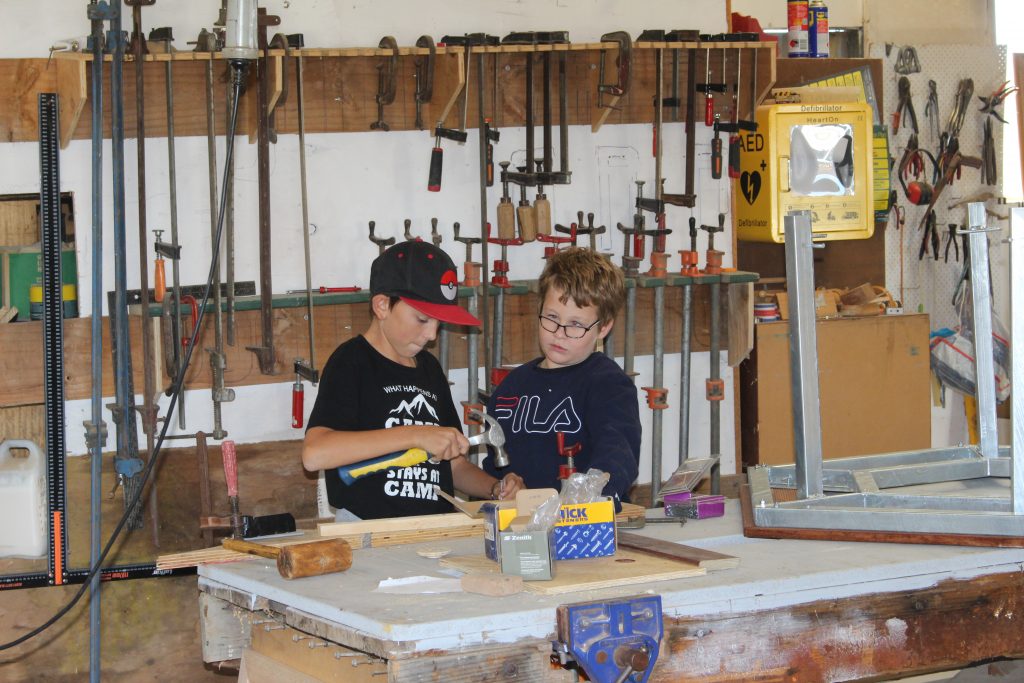
Local groups and not-for-profit organisations that delivered food and care hampers to community members across regional NSW during the 2021 COVID lockdowns can now apply to recoup up to $30,000 of their distribution costs. Reimbursed funds will be available in late April 2022.
The Resilience NSW COVID Regional Community Support (CRCS) program will be funded by the NSW Government and administered by the Foundation for Rural & Regional Renewal (FRRR).

Eligible hampers for the program are those delivered to people who were directed by Health orders to stay in isolation, and had no other means to access food or personal care items themselves.
Minister for Emergency Services and Resilience Steph Cooke said the NSW Government was committed to supporting community groups and not-for-profits in their important work.
“We know that many community groups had to dip into their own funds to distribute hampers and relief packs to people who needed extra support during the lockdowns,” said Ms Cooke.
“This funding opportunity will cover expenses like fuel, couriers, and logistics costs, helping them to continue their wonderful work into the future.”
Resilience NSW Commissioner Shane Fitzsimmons recognized the contributions that had been made to support communities impacted by COVID-19.
“These groups deserve our gratitude for all they have done to support their fellow community members in regional parts of the state,” said Mr Fitzsimmons.
“This program, which is being run by FRRR on behalf of Resilience NSW, will allow eligible organisations to be reimbursed up to $30,000.”
Natalie Egleton, CEO of FRRR, said that regional community groups across NSW have worked hard to support their communities through COVID, despite themselves facing funding and operational challenges.
“Rural not-for-profits’ resources are stretched incredibly thin, and for many groups, the costs of distributing these hampers came out of their own pockets, so getting money back into their kitty is vital,” said Ms Egleton.
“We have worked closely with Resilience NSW to ensure that the reimbursement application process is straight-forward but if you have any questions just give us a call on 1800 170 020 and our team will be happy to talk you through it.”
A second stream of this program will open in March. The Capacity Building Stream is designed to help strengthen local community groups and not-for-profits in regional areas, so that they are better able to continue supporting their communities through COVID and future crises.
To find out what can be funded through the Reimbursement Stream, and to apply, visit https://frrr.org.au/ResNSW-Covid-Support.
Applications close 5pm AEDT on Tuesday 8 March 2022.
Residents of the severely drought-hit Marra Creek community, in NSW, have traditionally had to travel up to 250km to see a movie or drive 80km to the nearest hotel for social get-togethers.
The Marra Creek Public School Parents and Citizens Association decided things needed to change and set about creating an option for locals to enjoy pizza and a movie closer to home.
The school, located on the North West Plains, is one of the smallest in NSW, with a current enrolment of seven students, making it very isolated. Thanks to the ongoing and severe drought conditions in the area, the Marra Creek community has struggled with fundraising for workshops and events for local people.
P&C President Will Woolcock said the project aimed to combat isolation and bring the widespread district – which spans Bogan, Brewarrina and Warren – closer together to reconnect, strengthen community spirit, relax and enjoy a break.
“Between the lack of water and rain for crops, constantly feeding animals and financial difficulties, our community has had very little chance to get together,” he said.
With the help of a $5,000 Aussie Cotton Farmers Grow Communities Grant, their wish for a pizza oven and movie equipment for the school was been granted. The grant covered a media projector, outdoor screen, sound system, set top box and satellite dish as well as a pizza oven at the school.
This means the community is now able to gather locally for social activities including film nights and watching major sporting events, although COVID-19 brought additional issues and delayed the launch event and initial planned activities.

FRRR has awarded five grants totalling $150,152 to a range of community groups in Taree and Wingham. These grants will enable local groups to invest in resources and build their capacity to support their communities’ ongoing recovery following the 2019/20 Black Summer bushfires and floods earlier this year.
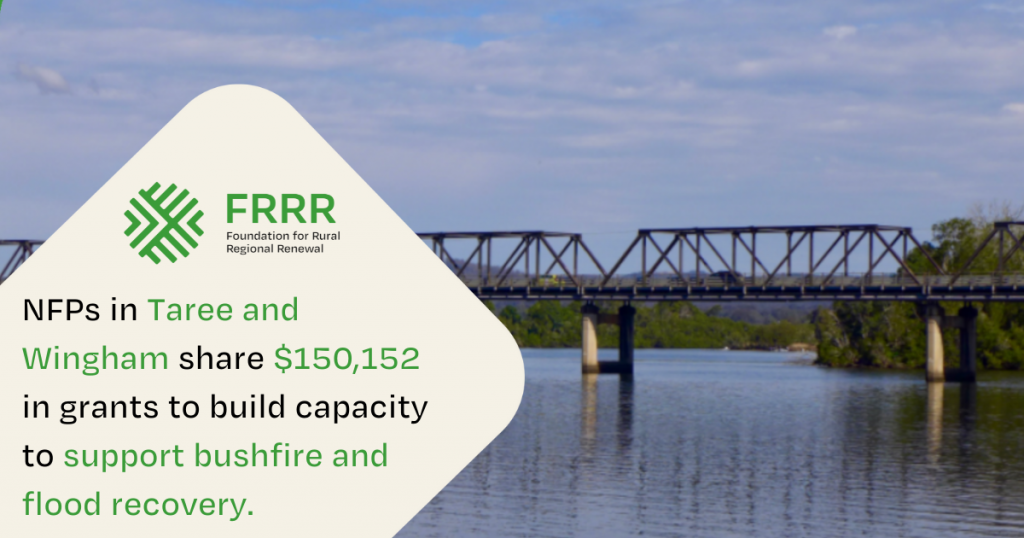
Funded through the Investing in Not-for-Profit Capacity in Regional NSW (INFPC) program, which is generously supported by the Paul Ramsay Foundation and a Taree-specific donor, these grants are part of an 18-month program. The program kicked off with a community workshop in October, where FRRR and local groups discussed local issues and how they could be resolved with community-led solutions.
This round of applications saw requests to support many of the issues raised during that session, including strategic and operational planning, marketing, revenue strategy and a digital solution to support volunteers and NFP organisations.
Joanna Kemp, FRRR’s INFPC Program Manager, said that there were many common themes among participants and community groups.
“Uncertainty and volunteer fatigue are real concerns for NFPs in Taree and Wingham, and in fact it’s something that FRRR is consistently hearing from rural organisations across the country. The cumulative impacts of disasters like fires, floods, the mouse plague and COVID-19 mean that community groups simply don’t have the volunteers, resources and training that they need in order to tackle the issues in front of them.
“The applications for this funding also align with what we heard in our recent Heartbeat of Rural Australia study – volunteer fatigue, excessive red tape in many grant application processes and a lack of resources are making it challenging for rural community groups. These are all issues that also came up during our community workshops, which is why we are delighted to be able to offer programs like INFPC that help address some of these issues.
“From engaging with these organisations, it’s apparent they have an unwavering commitment to bringing positive change to their communities’ and to becoming more prepared in the days ahead. The grants will allow these not-for-profit organisations to scale their operations and continue to provide essential services to their community as they recover from successive disasters,” said Ms Kemp.
The five grant recipients are:
- Circartus Incorporated, Wingham – Making the Most of What We Have – Boost the capacity and future sustainability of local circus school, Circartus Inc, through the development of a strategic plan and webpage design. $10,152
- First Steps Count Incorporated – Genuine Co-design with Community, Taree – Engage community in the development of the operational plan for a new community hub servicing children and families in Taree by resourcing a Co-Design Coordinator role. $25,000
- Mid Coast Outreach Incorporated, Wingham – Mid Coast Outreach – Office and Marketing Support – Grow the capacity and profile of newly established organisation, Mid Coast Outreach, through support for human resources, branding & marketing, and IT infrastructure. $34,000
- Mission Australia, Taree – Mid Coast 4 Kids Revenue Strategy – Boost the operational capacity of ‘Mid Coast 4 Kids’, collective impact project seeking positive social outcomes for children, young people and families, through the development of a revenue strategy. $6,500
- Wingham Chamber of Commerce, Wingham – Not-for-Profit Portal – Build the capacity of not-for-profit organisations in Taree and Wingham through consultation and development of shared digital tools to improve volunteer efficiency and effectiveness, and overall organisational capacity. $74,500
For more information about the Investing in Not-for-Profit Capacity in Regional NSW program, visit – https://frrr.org.au/investing-in-not-for-profit-capacity-nsw/.
Much needed boost for 17 initiatives in affected NSW and QLD rural communities
FRRR, in partnership with Suncorp Group, has awarded $200,000 in grants to 17 community groups and local not-for-profits in rural areas impacted by the March 2021 floods and storms for initiatives that will support their recovery from the disaster.
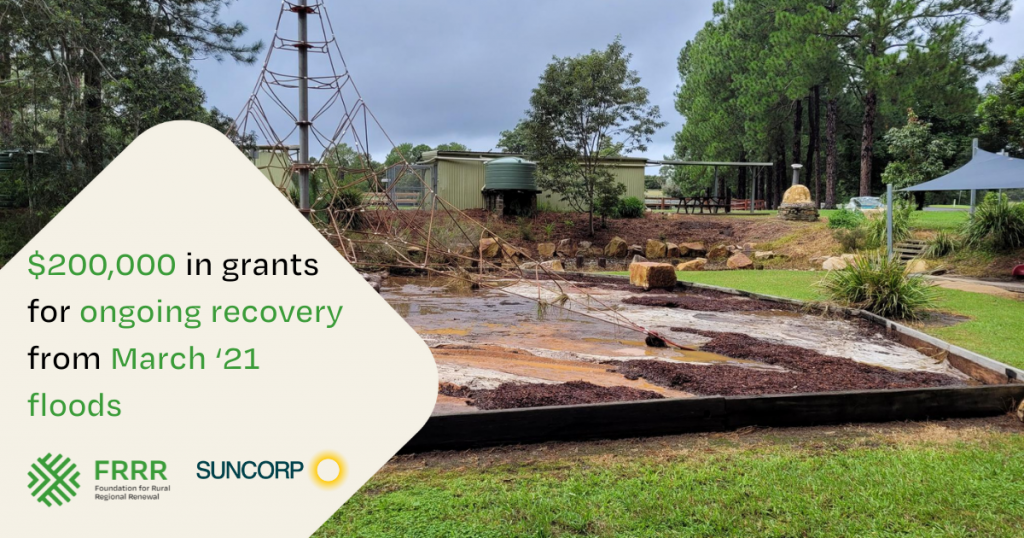
Funded through the Rebuilding Futures program, grants awarded range from $1,573 to $15,000. This funding will help with projects such as restoring damaged infrastructure, improving buildings and maintaining equipment needed for future disaster events, developing local disaster-response knowledge and skills, and providing access to services that foster recovery.
These grants are the first to come from Suncorp Group’s $1 million pledge to FRRR to support rural Australian communities impacted by, or vulnerable to, significant natural disasters.
Natalie Egleton, CEO of FRRR, said the grant recipients have showed a sense of resolve and strength when it comes to rebuilding.
“Recovery is not a quick process – not every community is going to have the capacity to take the same steps at the same time. Despite this, and the challenges of COVID-19 and volunteer fatigue, we’ve been genuinely impressed by the drive of local groups to actively seek support and funding to help their communities recover from the floods. It’s this kind of resilient spirit and motivation that will see these communities thrive once again.
“More than 50 percent of the applications we received for this round were for infrastructure and equipment, which shows not only the extent of the physical damage from the flooding, but also the long-term approach that these organisations are taking to the rebuilding of their communities,” said Ms Egleton.
Suncorp Group CEO, Steve Johnston, said these grants will enable recipients to overcome challenges and take control of their futures.
“The recipients of these grants are determined to make sure their communities recover and bounce back from the March 2021 floods. Natural disasters can turn people’s lives upside down, but the challenge has become even greater with the added pressure of the pandemic.
“Our remote, rural and regional communities know how to come together and work to rebuild their own futures. That’s why grant programs like these, that champion community-led recovery, are so crucial,” said Mr Johnston.
Among the 17 projects funded this round are:
- Bumbalong Valley Progress Association, NSW – Bumbalong Emu Project – $12,490 – Boost community connection and support the conservation of the local emu population by replacing infrastructure damaged during the March 2021 floods.
- Hawkesbury City Council, NSW – Hawkesbury Community Tech Connect – $14,836 – Enhance access to internet and mobile phone coverage with the creation of community technology hubs across the Hawkesbury region reducing isolation and supporting disaster recovery activities.
- Weemelah Hall, NSW – Beautification and Infrastructure Upgrade Project – $13,358 – Enhance community spaces with the installation of a BBQ for community use and beautification of the Weemelah Hall.
- Rathdowney and District Memorial Grounds Association Incorporated, QLD – Repair Rain-damaged Equestrian Arena and Make it Flood-resistant – $15,000 – Upgrade community infrastructure to mitigate the impacts of future flood events on the Rathdowney Memorial Ground.
More information on the Suncorp Rebuilding Futures grant program is available here.
The full list of grant recipients and their projects are below.
| Organisation | Project | Location | Grant | |||
|---|---|---|---|---|---|---|
| NEW SOUTH WALES | ||||||
| Bermagui Area Chamber of Commerce & Tourism Inc | A Positive Future Grow the organisations capacity to support the community with the provision of a portable projector and screen to enhance the delivery of community activities and events. | Bermagui | $2,584 | |||
| Bumbalong Valley Progress Association | Bumbalong Emu Project Boost community connection and support the conservation of the local emu population by replacing infrastructure damaged during the March 2021 floods. | Bumbalong | $12,490 | |||
| Hawkesbury City Council | Hawkesbury Community Tech Connect Enhance access to internet and mobile phone coverage with the creation of community technology hubs across the Hawkesbury region reducing isolation and supporting disaster recovery activities. | Bilpin, Colo & St Albans | $14,836 | |||
| Huskisson Public School Parents and Citizens Association | Huskisson Public School Community Canteen Boost community resilience and connection with upgrades at the Huskisson School canteen, providing appropriate cooking facilities for the community to cook, prepare and share meals. | Huskisson | $10,000 | |||
| Kempsey Singers Incorporated | Kempsey's Bandbox Theatre Costume Conservation Project Boost organisational capacity by repairing and mitigating future flood impacts at the Bandbox theatre and replace a portion of costumes damaged by the March 2021 floods. | Kempsey | $5,000 | |||
| Kendall Men's Shed | Noise Level Reduction Boost the service offerings at the Kendall Men's Shed with noise reducing machinery encouraging community participation and connection. | Kendall | $1,573 | |||
| Make a Difference PMQ Incorporated | MAD SHED Boost the organisations capacity to support their community, particularly through recovery with the provision of a shed to house essential equipment and machinery. | Port Macquarie | $15,000 | |||
| Mission Australia | The Common Approach - A Whole of Community Response to Child and Youth Wellbeing Grow community connection and wellbeing by providing activities through "The Common Approach" as a whole of community response to child and youth wellbeing across the Mid Coast region. | Taree | $10,811 | |||
| Unkya Reserve Committee of Management Nambucca Valley Council | Stay and Play - Unkya Reserve Playground Flood-Resilient Upgrade Boost access to family oriented community spaces with the repair of stairs and the installation of picnic table, bench and shade at the Unkya Reserve. | Eungai Creek | $15,000 | |||
| Quambone Resources Committee Inc | Quambone Memorial Hall - Final Touches Boost community connection by providing enhancements to the Quambone Memorial Hall, ensuring access to a comfortably appointed community facility for all to enjoy. | Quambone | $12,500 | |||
| River Cares Incorporated | To Improve Emergency Preparedness and Resilience by Developing a Community Emergency Plan Support emergency preparedness for Spencer and surrounding areas with the development of the Spencer Community Emergency Response Plan. | Spencer | $14,832 | |||
| UCA - Lifeline North Coast (NSW) | Psychological First Aid Workers - First Response Volunteers Strengthen community members mental health and wellbeing and assist in the training of community volunteer in Mental Health First Aid to support local recovery and resilience building. | Coffs Harbour | $14,800 | |||
| Upper Macleay Pre-School Incorporated | Tranquil and Safe - Upper Macleay Preschool Flood Recovery Initiative Support flooding preparedness by enhancing the Upper Macleay Preschool with repairs to flood damaged infrastructure and better preparing for future flooding events. | Willawarrin | $12,487 | |||
| Weemelah Hall | Beautification and Infrastructure Upgrade Project Enhance community spaces with the installation of a BBQ for community use and beautification of the Weemalah Hall. | Weemelah | $13,358 | |||
| Young Men's Christian Association of Sydney | The Y NSW CoastTeen Project - Empowering Peer-to-Peer Mental Health Support for Young People Living on the Central Coast Support community wellbeing with the delivery on the Youth Mental Health Peer Support program in the NSW Central Coast region. | Lake Haven | $14,729 | |||
| QUEENSLAND | ||||||
| Rathdowney and District Memorial Grounds Association Incorporated | Repair Rain-Damaged Equestrian Arena and Make it Flood Resistant Support the mitigation of impacts of future flood events on the Rathdowney Memorial Grounds by repairing, leveling and compacting the sand arena damaged during the March 2021 floods. | Rathdowney | $15,000 | |||
| Tamborine Mountain A H & I Society Inc | Replacement of Safety Rails on Access Ramp Increase accessibility to the Tamborine Mountains Showgrounds Pavilion by replacing the handrails and the front of the pavilion. | Tamborine Mountain | $15,000 | |||
Nearly $100,000 in grants awarded to local NFPs
Five not-for-profit organisations (NFPs) in the Bay & Basin region are sharing in $99,494 in funding that will strengthen the NFP sector and inter-organisational relationships in Bay & Basin, helping the community to thrive and achieve long-term stability.
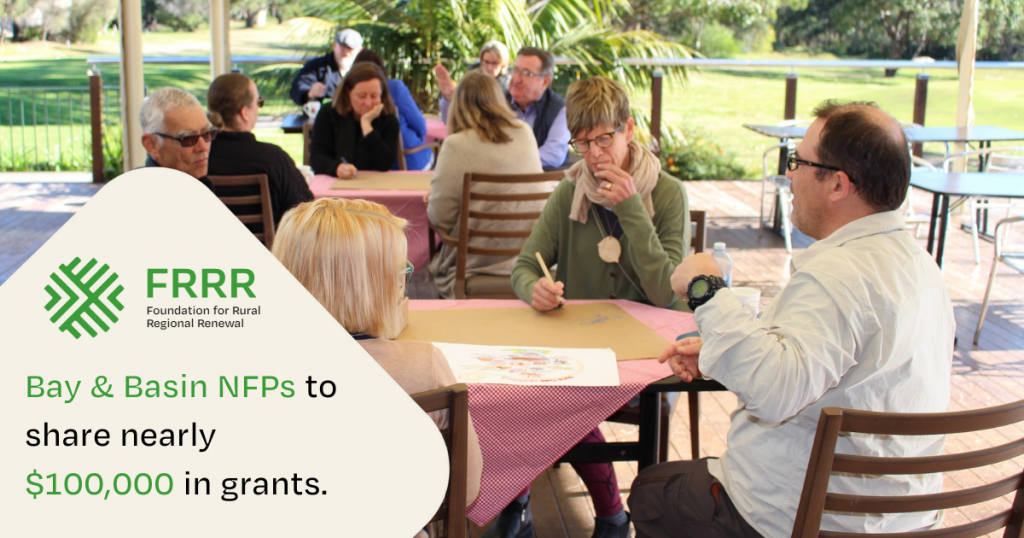
Funded through FRRR’s Investing in Rural Community Futures (IRCF) program, in partnership with the Bendigo Bank Community Enterprise Foundation, these funds will allow Bay & Basin NFPs to develop the tools, resources and skills they have identified they need to achieve longevity and enduring opportunities in their communities.
IRCF is a multi-year grassroots program aimed at building the capacity and connectedness of NFPs in select communities in regional New South Wales. As well as grants, these organisations will receive organisational support and coordination in the form of workshops that will help them to implement more effective systems, processes and training within their organisations.
The five funded initiatives focus on developing strategic and sustainable business skills, technological transformation, and supporting youth and community engagement. These local activities address needs highlighted through a community-led Roadmap, the development of which was facilitated by FRRR.
Natalie Egleton, CEO of FRRR, said that the IRCF program’s expansion into the Bay & Basin region has been a great boost for local communities, with significant investments now being made for the future.
“These not-for-profit organisations are enabling community-led action and resilience through their long-term initiatives.
“It’s wonderful to see local organisations prioritising community engagement and creating safe cultural spaces, particularly for local youth. Like Vincentia High School, which will use their $24,000 grant to help create a safe community space with their integrated community health hub called Walawaani-ngarn (welcome place),” Ms Egleton said.
David Impey, CEO of Bendigo Bank’s Community Enterprise Foundation, said they are pleased to have been able to help expand the IRCF program to include Bay & Basin.
“We’re delighted to be on board with a program that’s making a real and practical difference. Organisations like the Lady Denman Heritage Complex Huskisson will be transformed by their $6,424 grant, as it will allow them to transition from using outdated catalogue software to a more efficient and secure cloud-based method of storage.”
The three other grant recipients in the Bay & Basin region are:
- Sanctuary Point Community Pride Incorporated, Vincentia – Organised Youth Bay and Basin – $26,000 – Support the development of a youth forum and youth-led projects through the engagement of a youth practitioner to connect and support Bay & Basin youth.
- Huskisson Public School Parents and Citizens Association, Huskisson – Equipping the Huskisson P&C for a Viable Future – $13,070 – Enhance the sustainability of the Huskisson P&C through succession planning, development of strategic documents, laptop purchase and insurance costs.
- Bay & Basin Community Resources Limited, Sanctuary Point – Marketing and Communications Connecting BBCR and Communities – $30,000 – Enable Bay & Basin Community Resources to improve their communications and marketing through the employment of a marketing coordinator for six months.
Kate Dezarnaulds, who previously served as FRRR’s Program Manager for IRCF, will be transitioning into an IRCF co-facilitator role to serve the needs of these South Coast NFPs more directly. FRRR is also recruiting for a co-facilitator who identifies as First Nations, to work alongside Ms Dezarnauld. Those interested in applying can contact the FRRR team at https://frrr.org.au/contact-us/.
In addition to Bay & Basin, the IRCF South Coast program is also working in Nowra, Batemans Bay and Ulladulla, with the support of The Snow Foundation and in Junee, Leeton and Nambucca Valley in partnership with the Vincent Fairfax Family Foundation.
For more information about the Investing in Rural Community Futures program visit https://frrr.org.au/ircf-program/.
Yuin Nation
Professional artists from the Bega Valley are invigorating Pambula Village with vibrant and colourful large-scale artworks, thanks to a bushfire recovery initiative.
Six commissioned pieces now complement a 22-site historic walking tour and are providing a boost to morale, employment and tourism.
The Bega Valley LGA was among the most impacted by the 2019/20 Black Summer bushfires, with 465 houses destroyed, 1,279 rural landholders impacted and around 60 per cent of the area burnt. Pambula has also experienced drought and COVID-19. The cumulative effects of all this have resulted in the loss of livelihoods, employment, prospects, wealth, environment, sense of security and mental wellbeing.
The Waislitz Family Foundation, in partnership with Australian Community Media, joined forces with FRRR after the Black Summer bushfires to support recovery. The Pambula arts project was granted $25,000 through FRRR’s Strengthening Rural Communities program, funded by the Waislitz Family Foundation in partnership with Australian Community Media.
Pambula Business Council President Michelle Pettigrove said the road back from the region’s losses is long and daunting and the ongoing Pambula Art Project gives this community a strong sense of unity, pride and direction.
“There is a discernible buzz on the street, tourists talk about the great community spirit of the town,” she said.
Artists get to exhibit their work to a large audience while helping increase Pambula’s profile and attract visitors to the Village and extended Bega Valley region. It’s boosting sales for local businesses and creating a more culturally vibrant community.
The Art Project was also mentioned frequently by voters when Pambula was named a finalist in the NSW Small Top Tourist Town awards.
While many buildings in Pambula have some historic significance, plain brick walls of newer buildings were identified as perfect ‘canvases’. Some artworks were painted directly onto buildings, and a clever solution using Laminex and aluminium panels meant others could be installed to building facades without causing damage.
Ms Pettigrove said the artworks were not designed to overpower the existing streetscape “but rather to illuminate and amplify Pambula’s historic, cultural and environmental identity, including the history and connection to country of the Yuin People – the original custodians of our region”.
A self-guided history walking tour map has also been produced, featuring 22 of Pambula’s historic buildings and sites to shine a spotlight on the fascinating and quirky history of the village and local identities. Pambula was the birthplace of Sir William McKell, the second Australian-born Governor General, and his home is now an art gallery. Syms Covington, who served with Sir Charles Darwin on ‘The Beagle’ retired to Pambula and continued to send Darwin samples of Australian flora and fauna for many years. Covington then served as postmaster in Pambula and his house is now a popular restaurant/gallery.
Future plans for the project include adding and celebrating more Yuin Nation history in the original self-guided History Walk, following ongoing extended consultation with both the Bega Aboriginal Land Council and the Twofold Aboriginal Corporation.
Arakwal Country
Founded in 2015, The SHIFT Project Byron is a short-term educational transition program for women who are homeless or at risk of homelessness. Five staff, 12 volunteers and a governing committee of seven oversee the program that supports women navigate the challenges from homelessness to independence.
Lack of financial stability and economic independence are major factors contributing to homelessness, and SHIFT wanted to disrupt these persistent challenges in the Byron area, increase financial wellbeing, employability, and community connection through their new project – The Linen SHIFT.
The Linen SHIFT is an innovative social enterprise laundry service, providing transitional employment coupled with training, mentoring, and skill development to help disadvantaged women sustainably enter the workforce. Programs run for between three and 12 months, adapting to the unique needs of individual women, including employment offers / shift times for mothers and accommodating physical capability. Community connections are fostered through the CWA, and SHIFT employs a qualified support worker to assist participants to achieve their individual goals, address housing needs and underlying hardships.
The SHIFT Project applied to the ANZ Seeds of Renewal grant program at a critical point in its growth. The program was running as a small-scale, in-house opportunity for homeless women living at the SHIFT Project’s residential property in Byron Bay. The social enterprise model will allow for the program to be sustainable and self-funded in the long-term, but they needed initial funding to expand and relocate to a commercial venue, to meet increasing demand for participation from local vulnerable women. Several funders contributed to the project, including FRRR’s $14,265 grant to purchase an ironing roller.
The program successfully launched in March 2020 and thrived during the uncertain times of COVID. Fourteen women were employed over 10 months and provided with income and stability. The program has been supported by regular customers, and the business has been at capacity and is now planning to expand.
Letters of support from clients of SHIFT give glowing reviews about its management and impact. Elizabeth Jackson, President of Liberation Larder wrote: “The SHIFT Project has shown they are intelligent, creative, hard-working & reliable in their approach to growing their service for the benefit of women at risk of homelessness. With each new project they add to the social fabric of our community.”
The SHIFT Project takes pride in the community they have created, and with very good reason.
“Our women have provided feedback that since joining our team they feel safe, connected, encouraged and valuable – directly addressing the isolation and low self-esteem that poverty can generate.”
Anne Goslet, Managing Director The Linen SHIFT
And they are set to make an even bigger impact, with projections that in five years the project could support upward of 100 women to shift from disadvantage to independence.
Wiradjuri Country
The transition from teenager into adulthood is widely acknowledged as a tough one. As we leave behind childhood and enter our formative years, a greater sense of responsibility, identity and independence can be extremely overwhelming for some. For those living in remote, rural, and regional Australia, this new life-stage can be even more daunting, especially as many young people are forced to move out of familiar environments to further their education or find employment.
Wagga Wagga, in the Riverina region of New South Wales, currently has around 11,800 young people living in the area. While Wagga Wagga has a lot to offer its younger residents, from education to a vast range of sporting clubs, the youth unemployment rate sits at 11.6% (2016 Census data).
With a large portion of the population transitioning from adolescence into adulthood, headspace Wagga Wagga wanted to help make the process a bit easier.
Partnering with local organisation Youth Reference Group (YRG), headspace Wagga Wagga developed a program called “Adulting”, based on an idea developed at the Heywire Regional Youth Summit. The YRG is an active group of individuals aged between 16-25 who dedicate their time to issues that impact young people’s mental health. Through a mix of brainstorming and lived experience, the group was able to identify 10 aspects of adult life they wished they knew more about before they had to deal with the issues. The list included the voting process, understanding tax and superannuation, the maintenance of rental properties (including cleaning), organising healthcare (both private and public), the job interview process and making important appointments.
Using a $7,000 FRRR ABC Heywire Youth Innovation grant, funded by The Sally Foundation, headspace Wagga Wagga and YRG were able to hire a videographer to help produce a video for each topic, which was then distributed on social media.
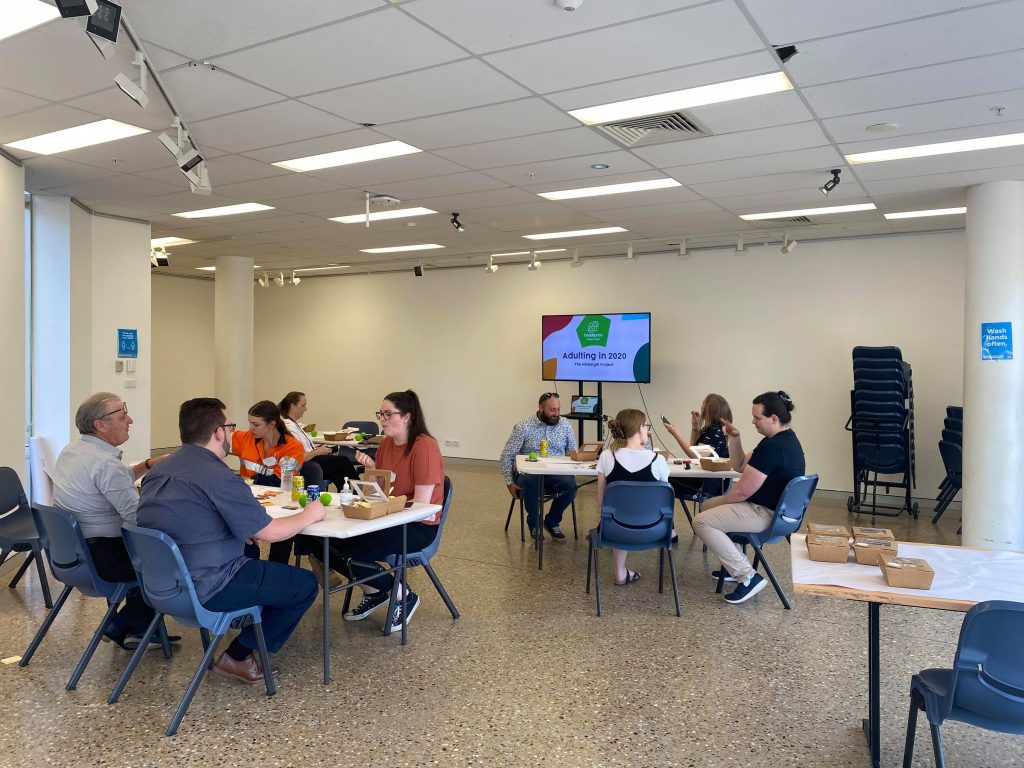
The videos were released over 10 weeks, via a Facebook page moderated by the YRG team. The “Adulting” videos reached 500 young people who now have resources to build practical life skills.
At the end of the program, the “Hindsight Project” took place for the ten young people who were instrumental in creating and curating the content. This provided an opportunity for reflection and discussion about the project and also a chance for networking.
COVID-19 restrictions made promoting the videos and authentic engagement with the content challenging. However, with the content still online and available for those who need it, the videos will continue to reach young people and provide them with tips and advice for their big move into adulthood.
Nari Nari Country
On average, people in rural and remote Australia experience much higher rates of chronic disease, avoidable illness, and are far more likely to be hospitalised in circumstances where earlier access to the right care could have prevented it. Sadly, they also find it much harder to access allied health professional services: they are often thin on the ground or not there at all.
One of the main reasons for this is the difficulty in attracting and retaining rural health workers, leading to serious gaps and inequity in access to preventative and primary health care in rural and remote areas. While connection to community and place is increasingly being identified as an important factor for retention, there are few examples of how rural communities can foster or create these conditions in a systematic way.
But one organisation is trying to help resolve this. Services for Rural and Remote Allied Health (SARRAH) is a grassroots organisation advocating on behalf of rural and remote Australian communities to have access to allied health services. SARRAH is also the peak body representing rural and remote allied health professionals (AHPs) working in public, private and/or community settings.
They received a grant for just over $140,000 through FRRR’s Enhancing Country Health Outcomes (ECHO) program, funded by Beyond Medical Education, to address persistent rural health workforce shortages in small rural and remote towns in NSW and Victoria through a project leveraging Rural Health Workforce Coordinators (RHWC).
The project team is headed by Dr Cath Cosgrave, a leading research academic in the field of rural health workforce attraction and retention.
Generally, retention research has focused on the influence of organisational and role conditions, however how individuals feel and perceive their acceptance into a community is increasingly proving to significantly influence retention. Dr Cosgrave’s findings, along with other research, indicate that the decision of a health professional to take up, stay or leave a rural position involves personal, organisational and social considerations. People who relocate to a rural place for work and have persistent feelings of social alienation and loneliness will always leave, irrespective of whether the position is financially beneficial.
That’s the key insight that informed the creation of the Attract, Connect, Stay project, which is based on a successful model developed in Marathon, Canada. The translation of this model into the rural Australian context will benefit not just the communities involved in the project but develop tools and resources that can be applied more broadly.
The project involves a whole-of-community approach to supporting health professionals and their partners / families when moving into a new rural community to help them to feel settled, become socially connected, and experience a sense of belonging, all identified as essential conditions for retention.
Planning commenced with three New South Wales pilot local government areas in August 2021: Glen Innes, Gwydir Shire and Narrabri. These communities will be supported through a series of co-designed workshops to form a network of community, local government, businesses and health service representatives. These networks will go on to jointly develop, fund, recruit, appoint, manage and monitor the RHWC position and its’ success in attracting and retaining suitable health professionals to fill health service gaps in each community.
Learnings from the three NSW primary sites will be captured in prototype tools and resources, and further tested in two secondary sites in rural Victoria. The project will conclude with a launch of a purpose-built website where the refined tools and resources will be made available to the public. This will allow other communities to use the tools and resources to help design local approaches to address gaps in their own primary and preventative health workforces.
“We need to see more community-led and innovative projects like Attract, Connect, Stay to ensure rural and remote communities have access to health professionals to the same extent as their city-based counterparts.”
Cath Maloney, SARRAH CEO

